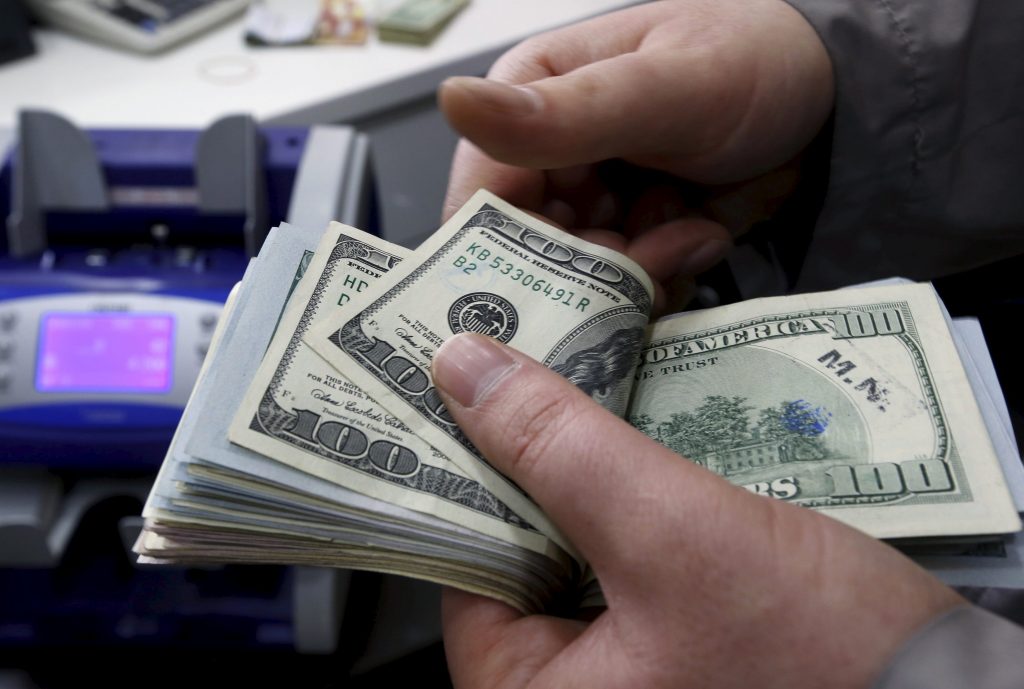- The dollar hovered at its highest against a basket of major currencies since December 2002 on Tuesday.
- Investors are betting last week's inflation data will make the Federal Reserve raise rates faster.
- Barclays, Goldman Sachs, and Jefferies have all forecast interest rates will rise by 75 basis points Wednesday.
The dollar hovered at two-decade highs on Tuesday as major financial institutions lined up to forecast that the Federal Reserve will deliver its biggest interest rate hike since the early 1990s at its Wednesday meeting.
The US dollar index, which gauges the greenback's performance against a basket of six currencies, passed 105.04 Monday to reach its highest level since December 2002. It peaked at 105.25, then slipped 0.33% to stand at 104.73 in early-morning trading on Tuesday.
The currency has outperformed its competitors as the Federal Reserve signals its intention to continue raising interest rates in an effort to curb inflation, which hit a fresh 41-year high of 8.6% in May.
Rising interest rates tend to strengthen the dollar because they reduce the total amount of money in circulation. Barclays, Goldman Sachs, and Jefferies have all projected that the Fed will agree to hike rates by 75 basis points when it meets Wednesday.
"Ourselves and Barclays have increased our Fed rate call to 75 basis points from 50 basis point at this meeting," Brad Bechtel, global head of foreign exchange at Jefferies, said in a recent note. "We not only think the Fed should hike but that they actually will hike by that order of magnitude."
A 75 basis point rise would be the largest Fed rate hike since 1994, when chair Alan Greenspan doubled interest rates to 6% in just seven hikes.
"Eat your heart out, 1994," Morgan Stanley strategists wrote last month, noting that current Fed chair Jerome Powell looks increasingly tempted to copy Greenspan's '90s playbook.
The dollar index measures the US currency against the euro, the Japanese yen, the British pound, the Canadian dollar, the Swedish kroner, and the Swiss franc.
The yen slid to a 24-year-low against the dollar Monday as investors bet on the Bank of Japan continuing its policy of ultra-loose monetary policy. The dollar fell 0.7% against the euro on Tuesday to a one-month low. The European Central Bank last week signaled it would raise rates by 25 basis points in July.










